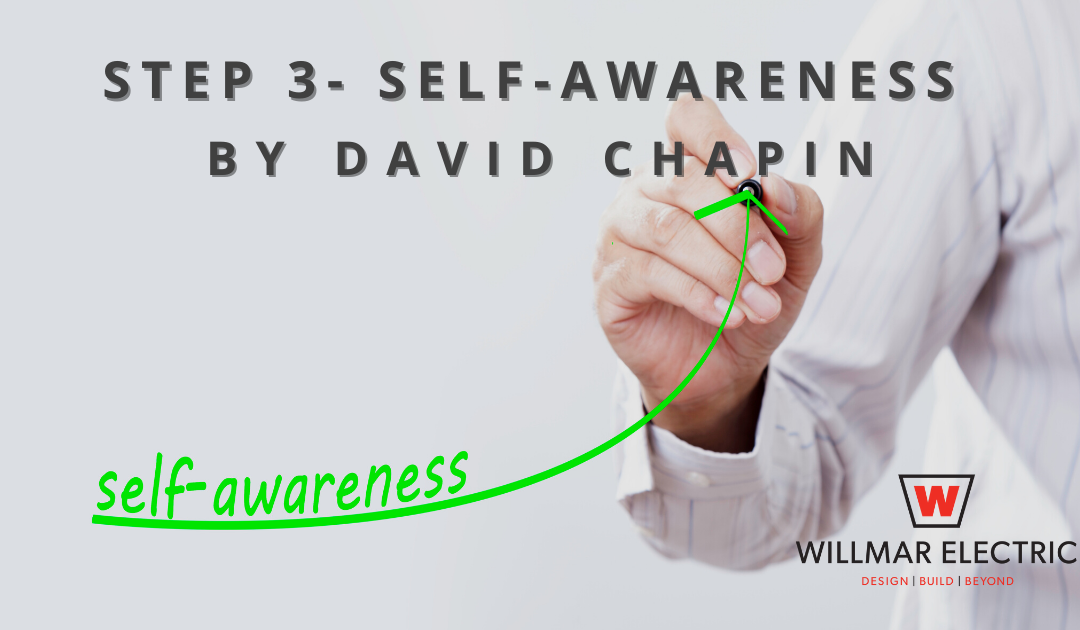Last month I blogged about productive confrontation. I outlined a five-step process.
In my last two blogs, I talked about trust and respect.
The background for the series is that if your job is to manage people and help them grow professionally, you need to give them feedback. Feedback both negatively and positively. Giving people feedback lets them know what they are doing well and where they need to improve or change.
Of course, how you give feedback makes all the difference in the world. So, I came up with a 5-step process. I hope I’m not plagiarizing. But if you recognize my list and think I should give credit to somebody, please let me know.
The third step is self-awareness. When confronting someone, you need to know your role in the situation. You need to consider how your actions or instruction might have caused the issue in the first place. Perhaps the reason for the person’s failings is the result of something you did or said. We are humans, so we need to keep our faults in mind.
Too often, I find myself going into a situation with a narrative in my head that doesn’t consider what I might have said or done previously that contributed to the other person’s actions or reactions. I find my mind is “made up” before I approach them.
This mindset leads to trouble as the interaction gets started.
A 2010 study by the University of Minnesota found “you can become a more effective communicator by understanding yourself and how others view you: your attitudes, beliefs, and values; your self-concept; and how the self-fulfilling prophecy may influence your decisions.”
In her Ted Talk, author and Organizational Psychologist Tasha Eurich says self-awareness is “the ability to see ourselves clearly, to understand who we are, how others see us, and how we fit into the world. Self-awareness gives us power. We might not always like what we see, but there’s comfort in knowing ourselves. And there’s actually a lot of research showing that self-aware people are more fulfilled. They have stronger relationships. They’re more creative. They’re more confident and better communicators.”
Co-author of the best-selling book Execution, Larry Bossidy, says, “self-awareness gives you the capacity to learn from your mistakes as well as your successes. It enables you to keep growing.”
A person who possesses no ability to self-reflect will quickly blame the other person for the issue or problem at hand. Author Erwin McManus says, “humility is not about having a low self-image or poor self-esteem. Humility is about self-awareness.” I find it is hard to be humble when I am positive I am correct and the other person is wrong.
My advice is to go into the confrontation, asking yourself what you could have done that caused the situation instead of asking why the other person is thinking or behaving a certain way. When paired with trust for and respect of the other person, you will be on your way toward productively addressing the conflict.
In her January 4, 2018, Harvard Business Review (HBR) article Eurich points out two types of self-awareness, internal and external. People that are high in both internal and external self-awareness are identified as being “aware.” People who lack external self-awareness are “Introspectors” and have blind spots caused by a lack of feedback. People who lack internal self-awareness are “Pleasers” who focus on how they appear to others. They end up unfulfilled.
Make sure as you reflect on your role and become self-aware, you don’t make yourself into a doormat. Eurich says self-aware people “know who they are, what they want to accomplish and seek out and value others’ opinions. This is where leaders begin to fully realize the true benefits of self-awareness.”
At Willmar Electric, our core values of treat others the way you want to be treated fits with all the steps I am outlining in the series, but I believe it matches this step closer than any of the other four. Considering the other person’s perspective is an excellent start to treating them the way they want to be treated.
In the next few days, I will follow up about keeping focus and finding a solution. In my opinion, those two things are joined with trust, respect, and self-awareness in making up the five keys to a productive confrontation. We don’t need to seek out confrontation in the workplace, but we can’t run from confrontation once we move into a leadership role.
I can’t help myself. I need to end this blog with a light-hearted but accurate quote from Anne Landers “Don’t accept your dog’s admiration as conclusive evidence that you are wonderful.”

